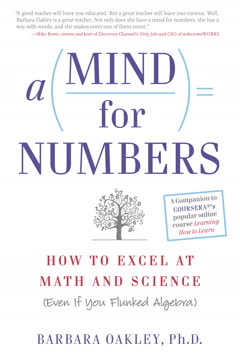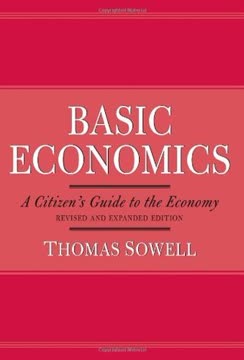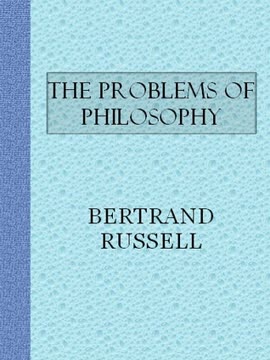Key Takeaways
1. Good arguments are essential for finding truth and explaining ideas
Argument is essential, in the first place, because it is a way of finding out which views are better than others.
Arguments as inquiry. Arguments help us explore different viewpoints and determine which are most supported by evidence and reasoning. They allow us to critically examine our own beliefs and those of others. By engaging in argumentation, we can uncover flaws in thinking, strengthen sound positions, and arrive at better-justified conclusions.
Explaining and defending ideas. Once we've arrived at well-supported views, arguments allow us to articulate our reasoning to others. Rather than merely asserting opinions, good arguments provide evidence and logical steps that allow others to evaluate the merits of a position for themselves. This process of explaining and defending ideas through argument is crucial for advancing knowledge and understanding in all fields.
2. Short arguments follow general rules for clarity and effectiveness
Resolve premises and conclusion.
Distinguish premises from conclusion. A clear argument separates the reasons given (premises) from the claim being supported (conclusion). This allows both the arguer and audience to examine each component critically.
Use concrete language. Vague or abstract wording obscures meaning. Specific, vivid language makes arguments easier to understand and evaluate.
Maintain consistent terms. Using the same phrasing for key ideas throughout an argument improves clarity and highlights logical connections.
- Other key rules:
- Start from reliable premises
- Be concise
- Focus on substance, not emotionally loaded language
3. Arguments by example require multiple, representative cases
Use more than one example.
Multiple examples strengthen generalizations. A single case may be an exception, but multiple supporting instances lend more credibility to a general claim. The number of examples needed depends on the size of the set being generalized about.
Representativeness matters. Examples should accurately reflect the broader group or phenomenon being discussed. Biased or cherry-picked examples can lead to flawed conclusions.
- Consider:
- Background rates and context
- Potential counterexamples
- Whether examples are typical or outliers
4. Analogies must draw relevant similarities between examples
Analogies require relevantly similar examples.
Focus on pertinent comparisons. Effective analogies highlight meaningful parallels between two situations or concepts. The similarities drawn should be directly relevant to the argument being made.
Recognize limits. No analogy is perfect - there will always be some differences between the compared items. A strong argument acknowledges these limits while emphasizing the relevant similarities.
- Key questions for evaluating analogies:
- How similar are the examples in ways that matter for the argument?
- Are there important differences that weaken the comparison?
- Does the analogy illuminate the issue or obscure it?
5. Arguments from authority need reliable, impartial sources
Seek informed sources.
Evaluate expertise. Credible authorities should have relevant qualifications and up-to-date knowledge in the specific area being discussed. General credentials aren't always sufficient - expertise must match the particular claim.
Check for bias. Even knowledgeable sources may have conflicts of interest or ideological slants that affect their views. Seek out impartial experts and consider potential motivations behind claims.
- Best practices:
- Cite sources fully
- Cross-check multiple authorities
- Be wary of outlier views among experts
- Develop "Internet savvy" for online sources
6. Causal arguments start with correlations but require careful analysis
Correlations may have alternative explanations.
Correlation is not causation. While a relationship between two factors suggests a possible causal link, other explanations must be ruled out. The correlation could be coincidental, reversed (B causes A rather than A causes B), or caused by a third factor influencing both.
Work toward likely explanations. To strengthen causal claims:
- Propose plausible mechanisms connecting cause and effect
- Rule out alternative explanations
- Look for additional supporting evidence
- Consider the complexity of real-world causation
Remember that most effects have multiple contributing causes, and causes may interact in complex ways.
7. Deductive arguments follow strict logical forms
A properly formed deductive argument is an argument of such a form that if its premises are true, the conclusion must be true too.
Validity vs. soundness. A valid deductive argument guarantees the conclusion if the premises are true. A sound argument is both valid and has true premises. Common valid forms include:
- Modus ponens: If P, then Q. P. Therefore, Q.
- Modus tollens: If P, then Q. Not Q. Therefore, not P.
- Hypothetical syllogism: If P, then Q. If Q, then R. Therefore, if P, then R.
Identifying form. Recognizing these structures helps evaluate arguments and construct strong ones. Be aware of common invalid forms that may seem persuasive but don't guarantee the conclusion, such as affirming the consequent or denying the antecedent.
8. Extended arguments explore issues thoroughly and address objections
Explore the issue.
Open-minded inquiry. Begin with questions rather than predetermined conclusions. Research various perspectives and be willing to revise initial views based on evidence.
Develop basic premises. Once you've outlined a main argument, provide supporting arguments for key premises that may be questioned or need clarification.
Address counterarguments. Anticipate and honestly engage with the strongest objections to your position. This demonstrates thorough consideration and can strengthen your overall case.
- Also important:
- Consider alternative explanations or proposals
- Acknowledge complexity and uncertainty where appropriate
9. Argumentative essays should be focused, clear, and well-structured
Your argument is your outline.
State your thesis clearly. Begin with a concise statement of your main claim or proposal. Avoid vague generalizations or merely describing a topic.
Use argument structure as organization. Let your main premises form the key sections of your essay. Within each section, provide evidence and reasoning to support that premise.
- Essential elements:
- Introduction with clear thesis
- Body paragraphs developing each main point
- Treatment of objections
- Conclusion summarizing key arguments
Seek feedback on drafts to ensure your reasoning is clear to others.
10. Oral arguments require presence, signposting, and audience engagement
Be fully present.
Connect with your audience. Make eye contact, speak with expression, and be responsive to audience reactions. Your physical presence and energy are part of the persuasive power of a live presentation.
Guide your listeners. Use clear signposting to outline your argument's structure and mark key transitions. Repeat important points and summarize periodically.
Use visuals judiciously. Visual aids should support your argument, not distract from it. Ensure any slides or handouts are directly relevant and enhance understanding.
- Additional tips:
- Practice to manage time effectively
- End with a strong conclusion
- Be prepared for questions
11. Public debates benefit from civility, common ground, and positive proposals
Work from common ground.
Listen actively. Seek to truly understand opposing views rather than just waiting to refute them. Ask questions to clarify others' reasoning.
Find areas of agreement. Look for shared values or goals, even if you disagree on means. This can create a foundation for more productive discussion.
Offer constructive solutions. Don't just critique - propose positive alternatives or ways forward. This shifts debate from purely oppositional to potentially collaborative problem-solving.
- Key principles:
- Maintain civility and respect
- Focus on arguments, not personal attacks
- Acknowledge complexity and uncertainty
- Be open to revising your own views
Last updated:
FAQ
What's "A Rulebook for Arguments" about?
- Purpose: "A Rulebook for Arguments" by Anthony Weston is a concise guide to the art of making arguments. It focuses on providing clear rules and examples for constructing effective arguments.
- Structure: The book is organized around specific rules rather than lengthy explanations, making it a practical reference for students and writers.
- Audience: It is intended for anyone looking to improve their argumentation skills, from high school students to law school attendees.
- Content: The book covers various types of arguments, including short arguments, arguments by example, analogy, authority, and more.
Why should I read "A Rulebook for Arguments"?
- Practical Guidance: The book offers straightforward rules that can be easily applied to improve argumentation skills.
- Versatility: It is useful for a wide range of readers, from students to professionals, who need to construct or evaluate arguments.
- Efficiency: The concise format allows readers to quickly find and apply the rules without wading through extensive theoretical discussions.
- Relevance: The book addresses contemporary issues in public debate and argumentation, making it timely and applicable.
What are the key takeaways of "A Rulebook for Arguments"?
- Clarity and Order: Arguments should be clear and follow a natural order, with premises leading logically to a conclusion.
- Reliable Premises: Start from premises that are reliable and well-supported by evidence.
- Types of Arguments: Understand different forms of arguments, such as by example, analogy, and authority, and how to use them effectively.
- Addressing Objections: Consider and address potential objections to strengthen your argument.
How does Anthony Weston suggest structuring short arguments?
- Resolve Premises and Conclusion: Clearly distinguish between your premises and conclusion, ensuring both are claims you want to commit to.
- Natural Order: Unfold your ideas in a logical and natural sequence, making it easy for the reader to follow.
- Concrete and Concise: Use specific, concrete terms and be concise to avoid losing the reader in a fog of words.
- Substance Over Overtone: Focus on providing actual reasons rather than relying on emotionally charged language.
What are the rules for arguments by example in "A Rulebook for Arguments"?
- Multiple Examples: Use more than one example to support a generalization, as a single example may be an exception.
- Representative Examples: Ensure that your examples are representative of the group you are generalizing about.
- Background Rates: Consider the background rates to understand the significance of your examples.
- Critical Eye on Statistics: Be cautious with statistics, ensuring they are not misleading or manipulated.
How does "A Rulebook for Arguments" address arguments by analogy?
- Relevant Similarities: Analogies require examples that are relevantly similar to the case being argued.
- Evaluate Premises: Ensure the first premise about the example used as an analogy is true.
- Assess Similarity: Critically assess how relevantly similar the two cases are to determine the strength of the analogy.
- Example: The book uses Valentina Tereshkova's analogy about women being capable astronauts as an illustration.
What advice does Anthony Weston give for arguments from authority?
- Cite Sources: Always cite your sources to provide credibility to your argument.
- Informed Sources: Seek sources that are well-informed and qualified to speak on the subject.
- Impartiality: Use impartial sources that do not have a stake in the issue to avoid bias.
- Cross-Check: Cross-check sources to ensure consistency and reliability of the information.
How does "A Rulebook for Arguments" suggest handling causal arguments?
- Start with Correlations: Causal arguments often begin with identifying a correlation between two events.
- Alternative Explanations: Consider alternative explanations for the correlation to avoid jumping to conclusions.
- Most Likely Explanation: Work towards identifying the most likely explanation for the correlation.
- Expect Complexity: Recognize that causes and effects can be complex and multifaceted.
What are the deductive argument forms discussed in "A Rulebook for Arguments"?
- Modus Ponens: If p then q; p; therefore, q.
- Modus Tollens: If p then q; not-q; therefore, not-p.
- Hypothetical Syllogism: If p then q; if q then r; therefore, if p then r.
- Disjunctive Syllogism: p or q; not-p; therefore, q.
How does Anthony Weston recommend structuring extended arguments?
- Explore the Issue: Begin by exploring the issue without immediately taking a position.
- Spell Out Ideas: Frame your basic ideas as arguments with clear premises and conclusions.
- Defend Premises: Provide supporting arguments for each premise in your basic argument.
- Consider Objections: Anticipate and address objections to strengthen your argument.
What are the best quotes from "A Rulebook for Arguments" and what do they mean?
- "Arguments are efforts to support certain views with reasons." This quote emphasizes the purpose of arguments as a means to provide rational support for a viewpoint.
- "Critical thinking can be practiced in a far more constructive spirit." It highlights the constructive nature of critical thinking beyond merely identifying fallacies.
- "Argument is a means of inquiry." This underscores the role of argumentation in exploring and understanding different perspectives.
- "Leave them thinking when you go." It suggests that the goal of argumentation is to provoke thought and reflection, not just to win.
How does "A Rulebook for Arguments" address public debates?
- Do Argument Proud: Engage in public debates with well-reasoned arguments and evidence.
- Listen and Learn: Actively listen to understand opposing arguments and leverage that understanding.
- Offer Positivity: Provide positive suggestions and solutions rather than focusing solely on criticism.
- Civility: Maintain civility and respect in debates, focusing on arguments rather than personal attacks.
Review Summary
A Rulebook for Arguments receives mostly positive reviews for its concise, clear presentation of logical reasoning principles. Readers find it useful for improving argumentative writing and critical thinking skills. Many appreciate its brevity and practical examples, though some feel it's too basic. It's recommended for students, writers, and anyone interested in constructing sound arguments. Critics note its non-Christian bias and lack of cognitive bias coverage. Overall, it's seen as a valuable introduction to logic and argumentation, comparable to Strunk and White's Elements of Style for writing.
Similar Books
Download PDF
Download EPUB
.epub digital book format is ideal for reading ebooks on phones, tablets, and e-readers.












